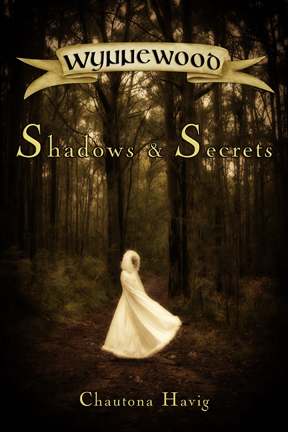Mortification, thy name is Chautona.
 That’s about how I felt when I saw the review. The 1-star review. For my children’s novel—Shadows & Secrets.
That’s about how I felt when I saw the review. The 1-star review. For my children’s novel—Shadows & Secrets.
I did not like the storyline – not quite believable. Too much juicy sex for my taste. Strike it out for me.”
The storyline was fantasy. Um, totally not believable. It wasn’t supposed to be. But that “juicy sex…”
I’ve written before about how it freaked me out, so I’ll just leave it here. That was my first 1-star review. It wasn’t my last. Someone asked not long after, “How do you stand it? I wouldn’t want anyone to leave a review ever again!”
Look, no author likes to get a bad review. That first one, I laugh at now. I’m kind of proud of it if you want the truth. It was a rite of passage for me. Since then, I’ve gotten more, but I don’t really pay attention to them—unless I’m looking for a book to read.
If there’s a 1-star review on a book that I’m considering, I must find out why. Every time I say that to people, I get incredulous looks and a shocked, “Why?!”
Here’s why.
Usually, the 1-star reviews are ludicrous. “There was too much god-stuff in the book.”
Well, yeah. It’s Christian fiction. I’m glad to hear that faith element actually made it in. And Mr. “Don’t Like Religion in My Books” might want to check out the categories before he buys again.
Some people think those lower reviews really are “mean.”
They think a 1, 2, or 3-star review hurts authors. I disagree. While the words inside those reviews may be rude and/or unkind, the stars themselves are not.
As long as I don’t have MOSTLY 1, 2, and 3-star reviews on a book, it doesn’t hurt me. Not getting any review does.
That’s right. Generally speaking, a 2 or 3-star review is more helpful to an author than no review at all.

Note: links are likely affiliate links that provide me with a small commission at no extra expense to you.
3 Most Important Reasons You Should “Always” Leave a Review
- Book reviews are kind of like “thank you notes.”
You see those memes all the time. “Thank an author. Leave a review.” I’ll let you in on a not-so-secret. They bug me.
Okay, I’m going to put on my author hat. I don’t expect a thank you note when someone buys my book. I’d say the cost of that book is thanks enough. Right?
However, this is still a big deal to authors. We do need that feedback. When people leave a review, it’s a form of validation (or in the case of a negative one, it’s a heads-up!). It tells us what we’re doing right (or wrong) so that we can be sure to make the next book even better… and better.
Sometimes we try new things. Those things can be crazy fun, but that doesn’t mean it’s good. A review that says, “I usually like this author’s books, but this one wasn’t my cup of tea. I didn’t care for it at all,” might not mean anything if it’s just one among ten or twenty. But if half the reviews come back like that, we know.
Don’t do that again.
-
Book reviews provide that little thing we call, “Cred.”
In the world of online marketing, this is called “social proof.” Basically, when a book has a bunch of reviews, it means a bunch of people has read it. And that number is many times more the number of people who actually reviewed.
I can’t prove this across the board, but this I know. Fewer than ten percent of the people who read my books review them.
How do I know this?
Because I know how many copies I’ve sold. I see how many reviews are up there.
And my mom taught me how to do math.
I’ll explain a bit below how a reader might debate between a book with two 5-star ratings and one with fifty ratings that also include some fours, threes, twos, and even a 1-star rating. Hint: that reader is exponentially more likely to buy the one with fifty ratings.
But it also gives that “cred” with advertising companies. Places like BookBub (you can follow me over there if you like) use the number and quality of reviews to help determine if they are willing to accept the (several-hundred-dollar) advertisement for their daily newsletter. It can easily cost five hundred dollars to submit an ad to BookBub. And they still won’t touch your book if it doesn’t have a significant number of quality reviews.
Those ads can be game changers for authors, but they can’t even hope to fork over the equivalent of a car or rent payment without a bunch of those little things called reviews.
But even those two are minimal compared to the third reason you should “always” leave a review.
-
The more reviews a book has, the more visible it is.
Books with more reviews get more love in many ways. It starts with Amazon, frankly. Once an author has at least 50 reviews (that seems to be the sweet spot, anyway), Amazon takes notice. And when Amazon takes notice, things happen.
- You’ll see those “Customers also bought” ads on the book’s page—and that book will then appear on other authors’ book pages. This helps readers see what other books there are out there like the one they just bought and liked (and are returning to the page to leave that review. One can dream, right?)
- The book will show up nearer the top of search pages. That helps a reader find it faster, obviously. Books are often impulse buys. That means seeing something quickly gives that book a much faster chance of being purchased.
- The more reviews and sales the book gets, the bigger chance that Amazon will feature it on the opening screen of a Kindle the next time a reader opens their device. I love getting those emails from readers saying, “Look what I woke up to!”
That helps authors, but what about readers?
Um… it helps readers, too. It’s actually designed to help readers. Everything Amazon does is to benefit the customer, not the vendor. Or, in other words, Amazon works hardest to help readers find books rather than sell books for authors. In both scenarios, the book gets sold. But the reader will be back to buy again–and maybe not from that author. They want to please the reader.
The more reviews that a book has, the higher the chance is that reader will purchase the book. It’s almost exponential. Go compare two widgets–one with two 5-star ratings and one with fifty ratings that leave an average of 4.6 stars.
Which one would you buy?
Okay, so with books, it is a LITTLE different.
Because see, the content of book reviews can really give a reader a better idea of how much they’ll enjoy it. Especially if someone took the time to write why they liked it rather than what it’s about.
The upshot is, the more reviews a book has, the more readers will see that book while perusing Amazon for their next read. This helps authors sell more books to the people looking for their style, and it helps readers find the books they are looking to read quickly—so they can get on with the good part. The story.
One more thing.
Did you notice that I keep putting that “always” in quotes? Yeah. Those are “scare” quotes. Because always implies that there’s never a reason not to. If you can’t be kind in your review or if you want to leave a review for the delivery system instead of the book itself… Actually, I’m not going to rehash that. I wrote it all in a blog post HERE. Just know that there are times that not leaving a review is a kindness.
Remember. Reviews don’t have to be long, complicated things.
I’m kind of known for writing long reviews. I tell you what I loved, what I didn’t, what annoyed me or delighted me. I often tell a story surrounding the book and give a critique of anachronisms or theology within the pages.

You don’t need to do that. In fact, I wrote a “Quick and Dirty Guide” to book reviews. Seriously, just answer four questions. Five if you want to be amazing. Answer them with a single sentence (short, even) each and boom! Done. If you want to write a longer, more thoughtful one, I even wrote a post about how to write a ten-step version that works, too.



Loved this post. I think most of us writers and readers have a love/hate relationship with reviews. But they serve a purpose. Well said.
Thanks! 😀
I do try to leave reviews, but sometimes just don’t want to take the time. I’m more inclined to not review a book I didn’t care for, because I don’t want to stop someone else from reading the book. Thank you for your invite.
That’s one of the reasons that a “folks who like xyz might enjoy what I didn’t” kind of thing really helps. I tend not to care for sensual books, but others don’t mind them, so I say so. “If you like Francine Rivers, you might enjoy this…” yadda yadda.
I have a genuine struggle with leaving reviews on books I read (and I read a LOT) which were just “meh” – OK to read, not impactful or hilarious or much of anything just a story. Hate to say that to an author/potential reader audience. I’m picky about what I LOVE and honestly sometimes I read an author’s books and just don’t like that particular part of their body of work – I’m not a fan of suspense and mysteries – I love your Alexa Hartfield books but that is a totally unique style (deliberately referrring to Alexa’s clothing choices). So maybe I’ll try leaving more reviews of books I like less than 4 or 5 stars – even if it bothers my deeply ingrained “if you can’t say something nice” trait. Thanks for always provoking thought and often smiles, laughs and sighs!
I really love Amazon’s rating system.
5=loved it
4= liked it
3= okay
2= didn’t like
1= hated it.
I mean, how often do you HATE a book?
That means that you’ll almost never have to leave 1 star (and I refuse to unless it is so misrepresented that people will be shocked or offended by content.
And there aren’t very many books I actively dislike. I’ve only left a 2 star rating a couple of times.
Three… I use that “okay” for anything I don’t actively like or DIS-like.
I think the worst thing about those 3-stars is that I leave them mostly on non-fiction. And I love good non-fiction, but I haven’t gotten a lot of good stuff in recent years. 🙁
PErhaps for your less enthusiastic reviews you could combine the “meh” star with
“Not my cup of tea, but I think people who enjoy (insert parts you know some people like or similar authors) would appreciate the book.”
That way you don’t violate your own conscience and another reader gets help with her shopping process!
Either way, don’t leave a review if you can’t do it comfortably. I’d never want someone to feel obligated!